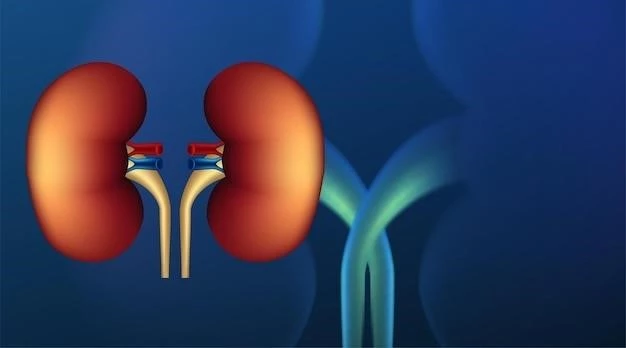There are different types of kidney stones, including calcium stones, uric acid stones, and cystine stones.
Types of Kidney Stones
Kidney stones can be categorized into different types based on their composition. The common types include⁚
- Calcium stones⁚ Most kidney stones are calcium stones, usually in the form of calcium oxalate.
- Uric acid stones⁚ These form when the urine is too acidic.
- Cystine stones⁚ These rare stones form due to a genetic disorder causing the kidneys to excrete excessive amounts of certain amino acids.
- Struvite stones⁚ These stones are caused by urinary tract infections.
Gallstones can form when there is an imbalance in the substances that make up bile, such as cholesterol or bilirubin.
Causes of Gallstones
Gallstones develop due to various factors, including⁚
- Excessive cholesterol in bile
- Imbalance of bile salts
- Inflammation of the gallbladder
- Genetic predisposition
- Rapid weight loss
- Pregnancy
- Diabetes
- Liver diseases
Understanding these causes is crucial in managing and preventing the formation of gallstones.
Treatment for bladder stones may include medications, minimally invasive procedures, or surgery.
Treatment Options for Bladder Stones
The treatment of bladder stones may involve various approaches, such as⁚
- Medication to dissolve the stones
- Extracorporeal shock wave lithotripsy
- Cystolitholapaxy
- Ureteroscopy
- Open surgery for large or complex stones
- Fluid intake to prevent stone recurrence
Consulting a healthcare professional can help determine the most suitable treatment option.
Prevention strategies for kidney stones include staying hydrated, dietary modifications, and medication if necessary.
Preventing Kidney Stone Formation
Preventing kidney stones involves lifestyle changes and dietary habits. Key preventive measures include⁚
- Drinking an adequate amount of water
- Reducing sodium intake
- Limiting oxalate-rich foods
- Consuming enough calcium
- Monitoring protein intake
- Maintaining a healthy weight
- Avoiding excessive vitamin C supplements
- Following medical advice based on individual risk factors
Consulting a healthcare provider for personalized prevention strategies is essential.
Common symptoms of ureteral calculi include severe pain, blood in the urine, and frequent urination.
Symptoms of Ureteral Calculi
Ureteral calculi, or stones in the ureter, may manifest with symptoms such as⁚
- Sharp, severe pain in the abdomen or back
- Painful urination
- Blood in the urine
- Nausea and vomiting
- Frequent urge to urinate
- Difficulty urinating
- Fever and chills if infection is present
Early recognition of these symptoms is crucial for timely diagnosis and management.
Adjusting diet to reduce oxalate, sodium, and animal protein can help prevent certain types of kidney stones from forming.
Dietary Management for Renal Calculi
Dietary strategies for managing renal calculi include⁚
- Increasing fluid intake
- Reducing sodium and oxalate-rich foods
- Moderating animal protein consumption
- Consuming calcium-rich foods
- Eating a balanced diet with fruits and vegetables
- Limiting foods high in sugar and fructose
- Consulting a dietitian for personalized dietary recommendations
Effective dietary management plays a significant role in preventing kidney stone formation.

Surgical Procedures for Removing Stones
There are several surgical procedures for removing stones, including⁚
- Extracorporeal shock wave lithotripsy
- Ureteroscopy
- Percutaneous nephrolithotomy
- Laser lithotripsy
- Open surgery (rarely used)
The choice of procedure depends on the size and location of the stone, as well as the patient’s overall health.
Complications of Untreated Gallstones
Untreated gallstones may lead to serious complications such as⁚
- Gallbladder inflammation (cholecystitis)
- Bile duct infection (cholangitis)
- Pancreatitis
- Biliary cirrhosis
- Gallbladder cancer (rare)
Early detection and appropriate treatment are essential in preventing these severe complications associated with untreated gallstones.
